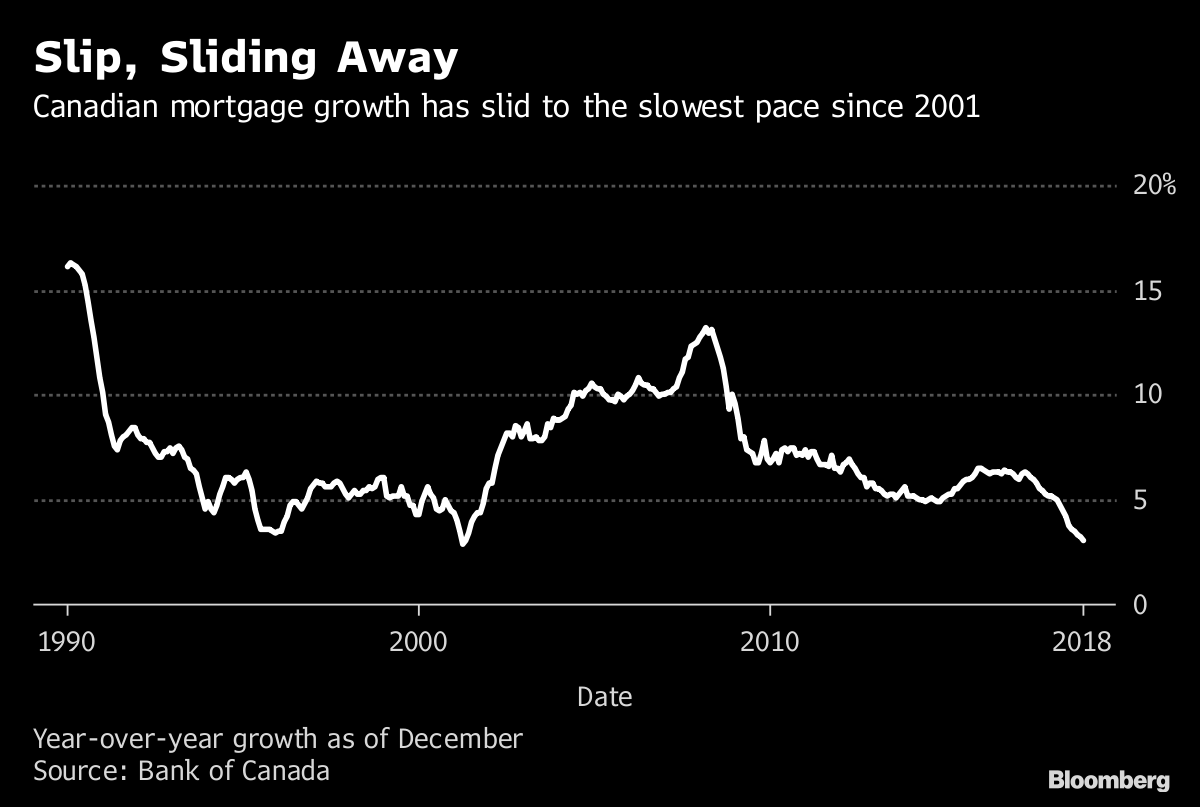Good news, Canadian mortgage growth is finally coming off the frenzied boil of recent years. As shown below, according to the Bank of Canada, Canadian residential mortgage growth rose 3.1% year over year in December to $1.55 trillion, the slowest pace since May 2001, and half the growth rate of two years ago. Canadian households need time to heal their fragile finances and piling on debt at a slower rate is a critical step. Paying it down and writing some off in bankruptcy is next. See Canadian banks on notice with mortgage growth at 17-year lows.
 It’s not so great for Canadian lenders and investors, however, as mortgages have been a mainstay of profits. Moreover, financial companies make up more than a third of the Canadian (TSX) broad market index, and many funds and managers are designed to track it through bull and bear markets.
It’s not so great for Canadian lenders and investors, however, as mortgages have been a mainstay of profits. Moreover, financial companies make up more than a third of the Canadian (TSX) broad market index, and many funds and managers are designed to track it through bull and bear markets.
As the oligopoly lenders of first resort, Canadian banks are naturally levered on Canada’s economic/credit cycle. But even in the 2000-02 decline, when Canadians were less indebted, and the economy managed to avoid joining the US in an official recession, Canadian banks lost half of their value and led the overall TSX to match them in the drubbing.
To fill the mortgage-profits void, Canada’s six biggest banks increased their commercial lending last year by 11%, even as Canadian corporations were already the most indebted in many years (see Heap of Junk) and their revenue and profit cycle due for disappointment.
All of this has served to attract even more international attention from short sellers betting that Canada’s banks are overdue for their next cyclical repricing. See: Short sellers renew bets against Canadian banks in 2019. If past is prologue, the ‘correction’ this time could easily be 50% from the 2018 share price peaks, and short sellers will be richly rewarded for their patience.
Unfortunately, most Canadians are today holding the ‘long’ side of this trade on the mistaken belief that bank shares are ‘defensive’ and the broad Canadian stock market is well diversified. Following ten years of the largest credit orgy in Canadian history, they’re anything but. It’s no consolation, but Australian bank investors face similar downside for similar reasons, see Australian banks have more than reputations to worry about. The songs remain the same.


